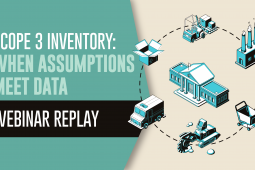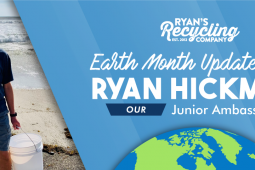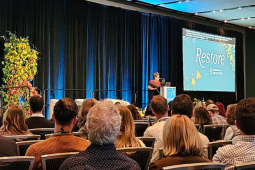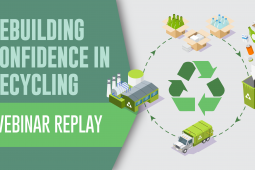Recent years have been difficult for recycling programs across the US and Canada. The market disruptions caused by China’s National Sword policy and contaminated materials have created tremendous financial pressure for local collection programs. Compounding this challenge has been a steady stream of media stories suggesting that recycling itself is “dying”. But is this really the case?
While industry veterans have watched recycling survive and continue to grow through past market downturns, people outside the industry often lack this context to recognize that this situation will eventually pass.
Are recycling programs worth the cost and effort? Does putting a bottle in a recycling bin actually make a difference? These are reasonable questions that decision-makers and the general public are asking. Even after commodity prices eventually bounce back, the current one-dimensional narrative suggesting that “recycling is broken” has the potential to settle into a general perception undermining support for recycling programs long into the future.
For example, consider the urban myth that suggests that it is pointless to recycle since “it all goes to the landfill anyway”. Whether someone witnessed this in the past or heard false rumors, this myth illustrates the corrosive effect that these types of negative impressions can have on recycling behavior.
As an industry, we need to proactively offer an affirmative message through op-ed’s, media interviews, community forums, and other means to reinforce the public’s faith in recycling. The message we convey needs to be realistic. We need to aim not to sugarcoat the current challenges, but rather provide context that reinforces recycling’s long-term viability and the significant benefits it provides. So, what can we say to communicate these messages?
Here are some suggested talking points for two key audiences:
For Decision Makers
1. Recycling Is Not Dying: The market volatility caused by China is simply an extreme example of fluctuations we’ve experienced in the past. It may take a few years to rebuild, but there are already positive signs that recycling markets will adjust and bounce back.
2. Avoid causing more damage with short sighted decisions. Unlike sewer, road maintenance or other facility services, recycling collections only function properly with the active participation of the people served. Changes or cutbacks to recycling programs can lead to confusion that, in turn, results in greater contamination or drop off in participation. Changes may ultimately be necessary, but decision makers should carefully consider the long-term implications rather than simply focusing on immediate costs.
3. Put recycling costs into a broader context.
• In most cases, the real economic benefit of recycling comes not from commodity revenues but avoided landfill disposal fees. Make sure the full cost of landfilling recyclables is considered alongside potential cost savings from program cutbacks.
• Be up front that recycling collections (like all facility or municipal operations) cost money for hauling services. It may be easier to sell recycling at the outset by suggesting it pays for itself, but this can risk setting unrealistic expectations in the long term future for when the market inevitably faces a downturn.
4. Recycling strengthens the economy. Processing recyclables into new products creates approximately 10x the amount of jobs created by sending Waste to the landfill. Cutting recycling programs eliminates more than just the direct collection jobs. Research and communicate statistics about recycling’s economic impact locally.
5. Seize the opportunity. Use the current market situation to leverage support for policies to improve recycling programs. For example:
• Expand education efforts to address contamination and improve the quality of your recycling materials so they can command a better price.
• Make a greater effort to coordinate uniform messaging, color standards, etc. with neighboring recycling programs to avoid inconsistency that leads to confusion.
• The only way to avoid waste handling costs entirely is to prioritize waste prevention efforts. Pivot the conversation to potential policies that can reshape how your institution purchases and consumes packaging and other products.
6. Offer a strategy. Give decision makers viable, proactive steps to take. If action needs to be taken, you want to guide the strategy rather than leave a vacuum for others to suggest more radical, non-recycling-friendly alternatives.
For The General Public:
1. You make a difference when you recycle: Despite stories they may have heard, most items collected for recycling do in fact get recycled. Research has shown that a prime motivator of recycling behavior is understanding that one’s effort leads to a tangible result. Whether or not they care about the environment, it’s important that people know the bottle they put in a recycling bin really does get turned into something new. To the extent possible, research where your local scrap materials are going, and tell people what they’re being turned into with as much specificity as you can. Offer updates about how much your community or organization has recycled and use environmental calculators like the US EPA’s WARM model to show the resulting environmental impact.
2. You can help recycling by sorting correctly. Acknowledge the problems with China and contamination are real, but then give people a call to action that allows them to personally help solve the problem.
3. Reduce what you consume. As with decision-makers, flip the discussion to how people can have a greater impact than even recycling: reducing what they consume. Education programs tend to focus on recycling, but now is a good time to reinforce the other “R’s”.
4. Above all, keep it positive. Recycling is going through a rough patch, but this is an established multi-billion-dollar, international industry that generates hundreds of thousands of jobs and has a direct, measurable impact improving the environment. Be transparent about the challenges, but also give them a positive reason to have faith in recycling and waste prevention.
Do you have experiences, thoughts, or questions on this topic? I’m interested to network and share perspectives. Reach out to me at AlecC@buschsystems.com.





















